QuestionHello,
Last weekend, I notice that my 2 year old cat Clyde starting having these "episodes" where he would be still for about 15-30 seconds while drooling and also urinating wherever he was sitting. This happened several times in one night. We took him to the vet where he had blood tests, urinalysis, and a fecal test which all came back clear for the exception of a slight UTI. He also had an xray to check his intestines to ensure that he did not have a blockage. He did not. A couple of days after the "episodes" started, he began to have full out seizures. We are pretty sure hat he had 3 in total. He is now on anti-seizure medicine, fortiflura, and panacur. The latter two are for his diarrhea. Now he hasnt fully seized since Wednesday, but he is still having the episodes and the drooling is turning into foaming at the mouth. He also hasnt used the litterbox since wednesday. He is urinating during the episodes and had horrible diarrhea earlier in the week but nothing since. Any idea what this could be?? I don't have much more $$ to spend on trying to figure out what it is and would like to start solving the problem. We are currently waiting on test results from a lead test as well as a toxoplasmosis test. I am concerned that this is epilepsy, does it sound like it would be? Also, we thought maybe it was from drinking the xmas tree water, but his sister lives with us as well and she is totally fine.
AnswerHi Nicole. It does sound to me like he is still having seizure activity. Full convulsions are actually rather uncommon in cats. Most seizures are like the episodes you describe. The cat begins salivating and may lose control of his bladder or bowels, but does not completely lose consciousness. It's excellent that he's shown improvement on the anti-convulsant. Dosages can take some tweaking before you'll realize the maximum benefit, and most patients require treatment for several weeks before seizure activity really begins to get under control.
Epilepsy is less common in cats than in dogs, but it is a main cause of seizures. I'm glad your vet is checking for lead poisoning and toxo to rule those out as causes. Some vets will treat with an antibiotic such as Clindamycin, which is effective against toxoplasmosis, even if the test is negative. This is because dormant toxoplasmosis can be difficult to test for, yet it can cause neurological symptoms, because it stores itself in cysts that may put pressure on the brain.
That he hasn't had a bowel movement since Wednesday is disconcerting. Is he eating normally? If he's not eating as usual, he may have no stool to pass. Did the vet give him an anti-diarrheal? If so, this could have caused constipation. I would definitely check with the vet to see what the next course of action would be. Adding some fiber to his diet might help address both diarrhea and constipation, but more drastic measures may need to be taken to correct long-standing constipation.
Diarrhea and urinary tract infections are painful and can cause a cat to avoid using his litter box. Sometimes this problem doesn't correct itself once the pain is under control. However, frequent seizures can also leave a cat confused and exhausted, and this might be the reason he's
not using his box. Confining cats to a small area with their litter box, food, water and toys is often required to retrain cats to use the box. You may want to try a litter called Cat Attract to help him along (see www.preciouscat.com).
As for the Christmas tree water, check to be sure the preservative you're using is non-toxic to ensure this shouldn't be the issue. If either of the kitties show an interest in eating the needles or drinking the water in the tree stand, it would be best to keep them separated from the tree while you're not there to supervise them. Although consuming needles from a fir tree or drinking water contaminated with sap is unlikely to cause them permanent damage, the sap is mildly toxic and can cause salivation, vomiting and sores in the mouth.
Best of luck!
Jessica

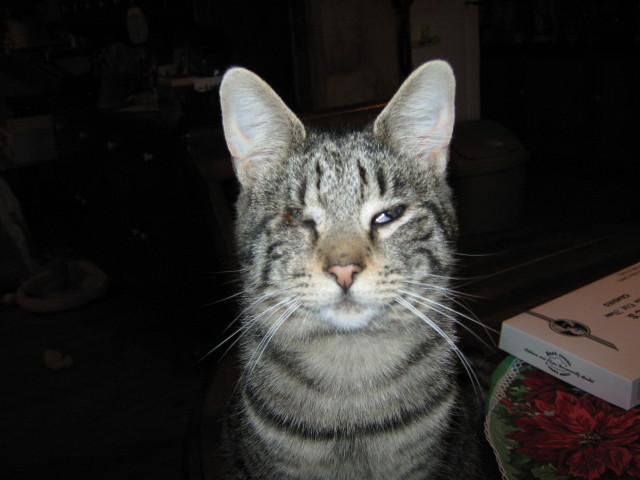 What breed is Jerome the Cat
Question
Jerome the Cat
Hi Karen.
Last summer on my da
What breed is Jerome the Cat
Question
Jerome the Cat
Hi Karen.
Last summer on my da
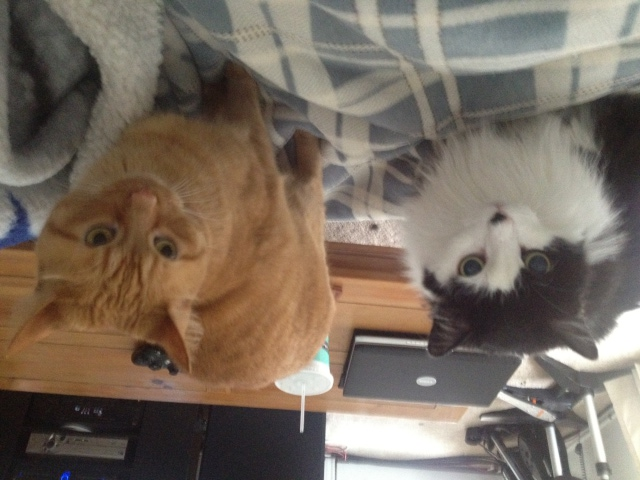 Cat peeing on floor after other cat died
Question
My babies
I have a 6 year old tabby (my
Cat peeing on floor after other cat died
Question
My babies
I have a 6 year old tabby (my
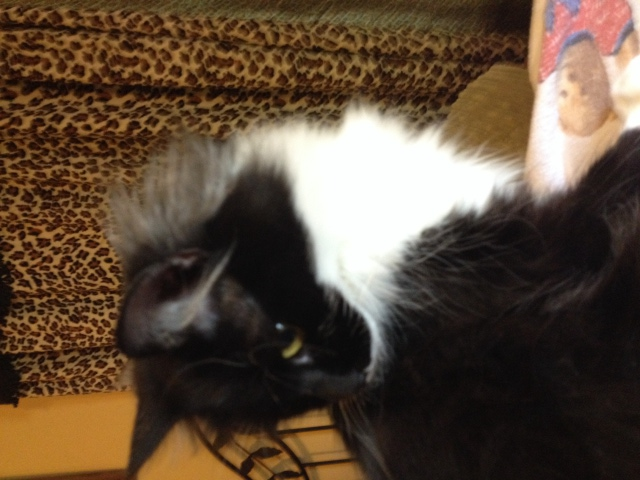 Breed of cat question
Question
Funny Face Funny Face photo2
Hi.
Breed of cat question
Question
Funny Face Funny Face photo2
Hi.
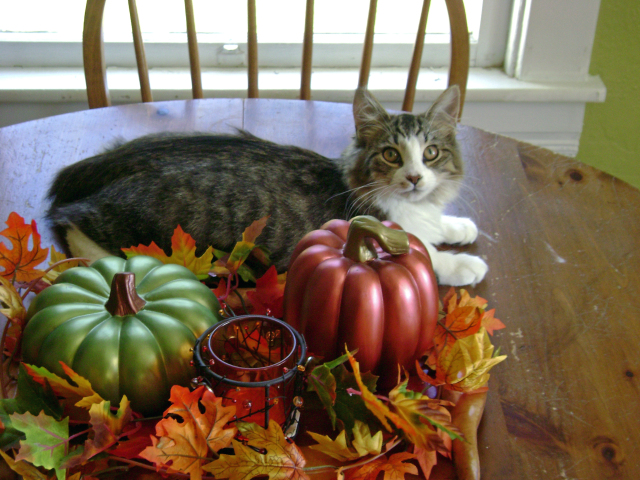 The breed of my 5 1/2 month old kitten
Question
Edmund 5 1/2 months ol
Hi, my husband and I re
The breed of my 5 1/2 month old kitten
Question
Edmund 5 1/2 months ol
Hi, my husband and I re
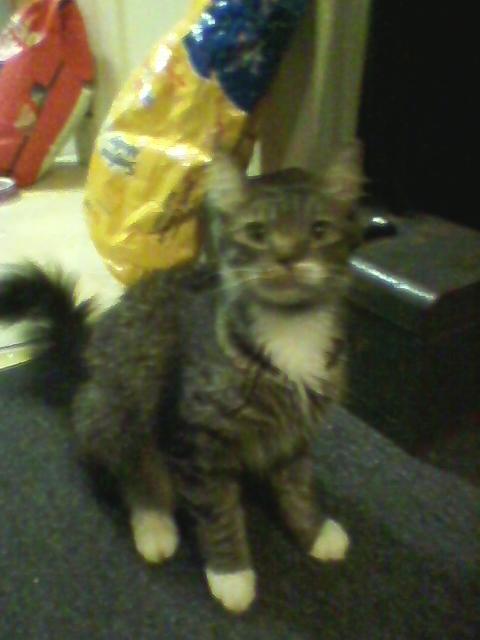 cat identification
Question
pic was from my phone,
i am currently f
cat identification
Question
pic was from my phone,
i am currently f